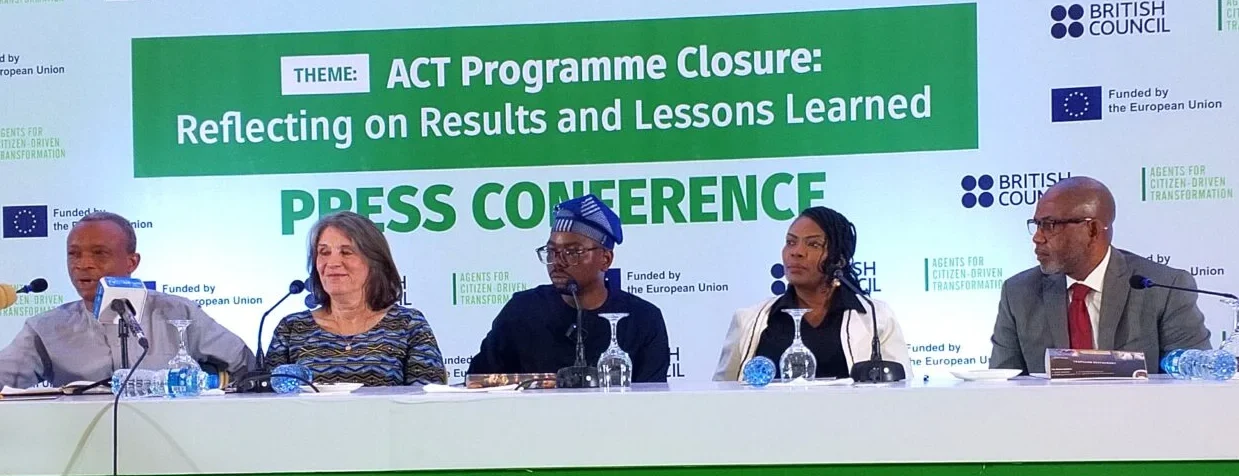By Justina Auta
The Agents for Citizens-Driven Transformation (ACT) Programme, said they supported 273 Civil Society Organisations (CSOs), networks and coalitions to be credible and effective drivers of change for sustainable development in Nigeria.
Mr Damilare Babalola, ACT National Programme Manager, disclosed this while briefing newsmen on Tuesday in Abuja, at the close-out ceremony of the programme.
The theme of the programme is, “Reflecting on Results and Lessons Learned”.
Babalola said the five-year EU funded programme, implemented by the British Council, focused on strengthening internal, external, and programmatic capabilities, as well as improved effective and inclusive regulatory environment for CSOs.
“We have worked with about 273 CSOs, out of which 233 was under the capacity development support in 10 states, while 40 networks of CSOs are in the area of enabling regulatory environment.
“Our work cuts across the 36 states and the FCT.
“ACT has also worked with strategic agencies of the government to improve compliance to regulations.
“We have worked with these agencies collaboratively over the last four to five years by ensuring that they understand the role of CSOs.
“We also ensure that citizens understand the mandate of these agencies in terms of how they regulate the space they work with,”he said.
Richard Garrett, Director Open Societies Sub Sahara Africa, British Council, disclosed that about 13 million euros was spent on the five-year ACT programme in Nigeria.
“The main focus of the support has been around organisation’s capacity to help CSOs govern themselves and as a result, they can better serve their communities and establish themselves,” he said.
Garrett, who said lack of organisational structures and capacities were challenges affecting CSOs operation, called for more synergy and investment to facilitate their operations.
Also, Dr Ifeoma Chukwuma, Component Organisation Development Manager, said the ACT Programme was designed to have a sustainable outlook, even after its close-out, which would contribute to sustainable development.
“We supported them by strengthening their financial management systems, monitoring and evaluation systems, and developed policies that will help them to do their work and become more credible.
“We also developed all kinds of policies that they needed, and these capacities were not just pushed down to the CSOs, rather we used an approach that allowed them to do their own organisational assessment.
“We identify the areas that they want their capacities to be developed and by doing so, they receive capacity development in the areas that they actually need development,” she said.
Also, Jan Knight, CSO Adviser, said: “We made sure all the training, coaching, mentoring and peer learning supports to the CSOs had common element of gender and social inclusion in everything that was done. (NAN)
Edited by Abiemwense Moru









